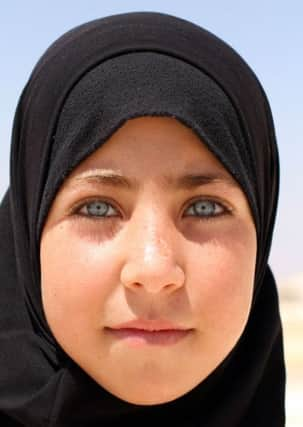From the front page to the front line


Every day in the media we see disturbing images of the death, destruction and displacement caused by violent conflicts happening around the world today. It is difficult to make sense of the scale of human suffering we are witnessing – here and now in the 21st century – but an exhibition opening at the 1830 Gallery in Halifax this month aims to bring greater understanding of the consequences of war.
From front page to front line is a retrospective of the work of acclaimed international photojournalist Will Wintercross, whose work in challenging situations overseas includes documenting life in Romanian sanotoriums in 2002 and in refugee camps in Angola and Zambia in 2003. More recently his work has focussed on the civil wars in Syria and Mali, the Ebola outbreak in Liberia and Sierra Leone and the refugee crisis.
Advertisement
Hide AdAdvertisement
Hide Ad“I think what makes his images so powerful is his involvement with the subjects,” says curator Paul Railton, himself a photographer, who has worked closely with Wintercross on the show. “He takes the time to find out about the people in his photographs – and he thinks about what his images can do to help.”
What Wintercross hopes to achieve with his photographs, he explains, is to hone in on individual and specific experiences, bringing out the humanity of the situation. “War is a nasty thing that you can’t shy away from,” he says. “People should be upset by some of the images but there is a line you have to walk. There has to be a purity to it – who is this person and why are we showing their pain and suffering? I am not on a mission or a crusade but the principle of photojournalism is to show people what is going on in the world and I am prepared to go to places where these things are happening.”
His pictures capture moments of painful intensity – grief, loss, violence, deprivation and fear – but he is careful to discover the story behind each of the photographs he takes. And those stories are explained in text accompanying the images on display in the exhibition. “They become real people when you find out their name, age and profession,” he says. “And then the viewer can feel a sense of connection.”
Some of the most affecting photographs are of children – particularly of Syrian youngsters running laughing through the rubble of the streets of Aleppo and a young child playing in an Ebola orphanage in Sierra Leone, both of which are incredibly powerful. There is a kind of joyfulness about them which poignantly communicates the notion of the indomitability of the human spirit.
Advertisement
Hide AdAdvertisement
Hide AdIt was an example of this kind of resilience that inspired Wintercross to set up a charity, The Syrian Refugee Relief Fund, in 2014. Earlier that year he had been working for The Daily Telegraph on the Turkish-Syrian border where he met grandmother Jamila Shacker who was looking after her 16 children and grandchildren in squalid conditions after fleeing the fighting. “She just opened up to me,” says Wintercross. “I paid for some food and medicine to be delivered. Then I thought – actually I can do more than that. And that’s when I decided to set up the charity. If you can salvage one tiny positive from that horrible war, it is that it has made me do something good. And that’s a glimmer of hope.”
The show runs April 23-May 29. www.1830gallery.org.uk